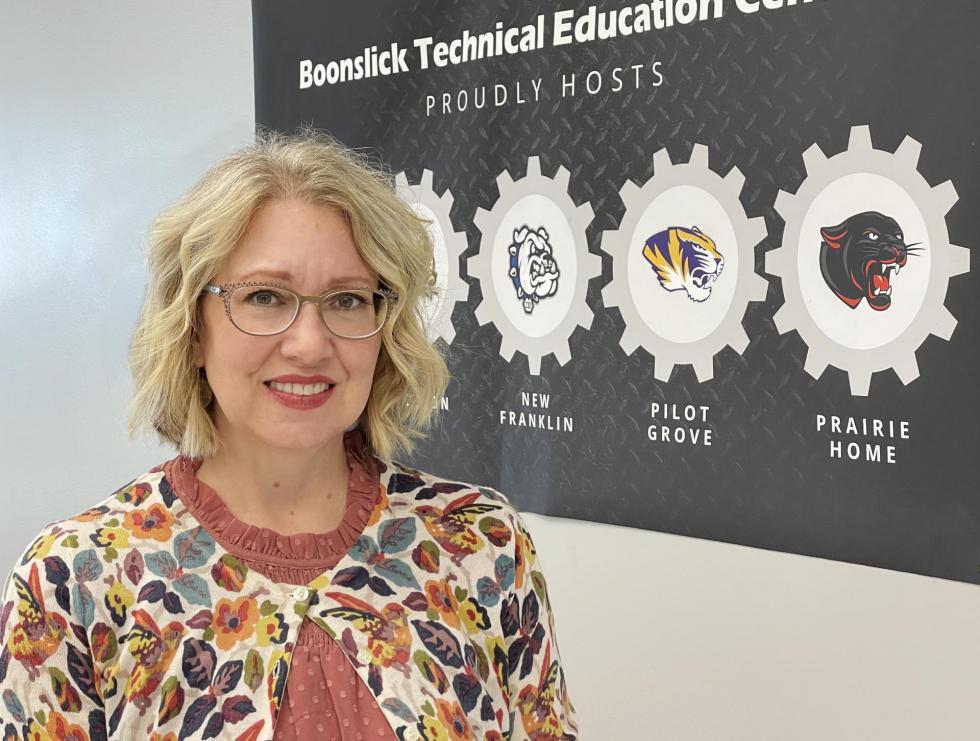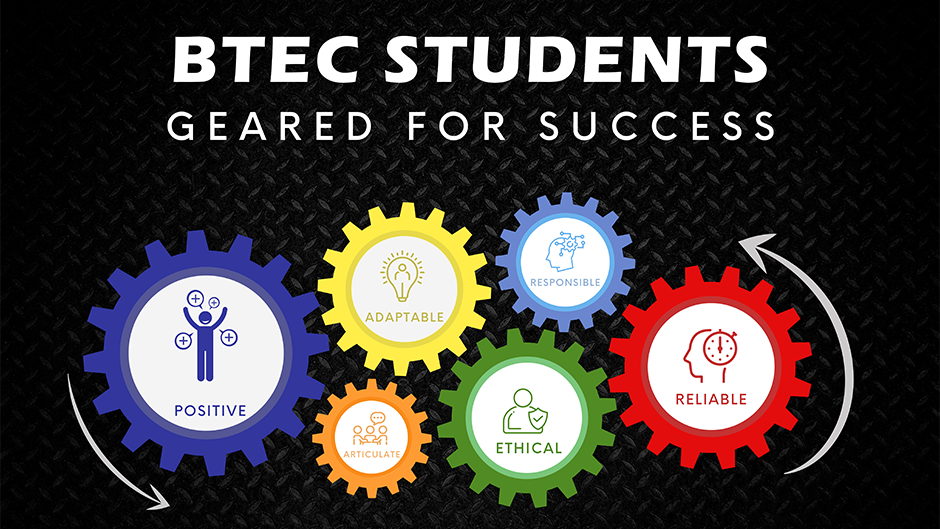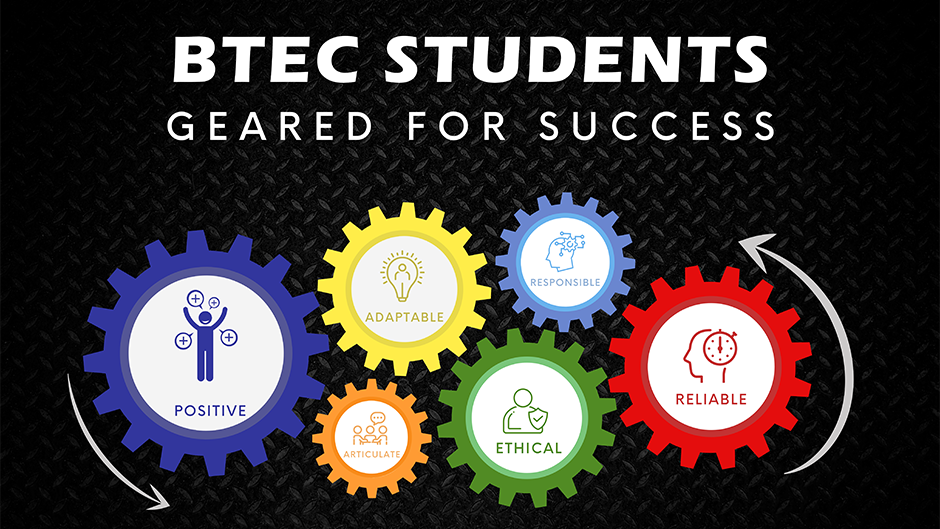Geared for Success
Teaching Employability and Workforce Readiness Skills
By Ken Mason and Diane James, SREB
Many students who graduate from high school with a diploma in hand feel ready for the workforce, but are they? And if they graduate with their diploma and an industry credential, do they have the employability skills needed to get a job?
 Leaders and teachers at
Boonslick Technical Education Center in
Missouri realized their center had a gap between
students’ readiness for work and their ability to get a job. As a
result, BTEC educators immersed themselves in teaching the
employability skills that make a job candidate desirable — such
as working well with others, being able to communicate and having
a positive attitude — skills that employers value and are
transferrable and useful in every job.
Leaders and teachers at
Boonslick Technical Education Center in
Missouri realized their center had a gap between
students’ readiness for work and their ability to get a job. As a
result, BTEC educators immersed themselves in teaching the
employability skills that make a job candidate desirable — such
as working well with others, being able to communicate and having
a positive attitude — skills that employers value and are
transferrable and useful in every job.
BTEC is a shared-time center serving five local schools that offers instruction in eight career areas. Director Carri Risner’s experience as a former chef, restaurant owner and culinary arts instructor and leader helped her to see how important it is for students to possess employability skills.
Top Employability Skills
A key component that jumpstarted the center’s employability immersion initiative was a survey Risner created outlining 13 of the most-requested employability skills. She administered it to local industry leaders and staff with the goal of prioritizing the top six identifiable skills.
Risner discovered that whereas her teachers were focused on traditional problem solving and critical thinking skills, industry leaders’ focus was quite different, highlighting more of the so-called “soft skills” needed in the workplace. The top six skills named by employers who responded to her survey were:
- Positive attitude
- Reliability
- Integrity
- Initiative/Adaptability
- Responsible
- Communicative
“It was a really defining moment that helped us move forward,” says Risner. “This would have gone off the rails real quick if we hadn’t done this [survey].” After conducting the survey, BTEC held professional development sessions to review survey results and get direct feedback from industry leaders on why they reported that these six skills were so important. The survey not only opened the door to building and expanding strong partnerships with business and industry, it also helped educators to better embed employability skills into their curriculum.
BTEC developed a promotional graphic and tagline — BTEC Students Geared for Success — that convey how the center focuses on the top six employability skills employers named. The graphic is now used in promotional materials and recruitment videos.
Risner and her team also established advisory committees comprised of local business, industry and community leaders, postsecondary instructors and others for BTEC’s eight career areas. Advisory committee members bring relevance to the center’s CTE programs and share the changing workforce needs that are impacting the region. The committee also advises teachers on the academic, technical and workplace skills students will need to thrive in their respective career fields.
Workplace Readiness Initiatives
Risner wanted to communicate the importance of workplace readiness schoolwide through the look and feel of the building and the overall learning experience. To better simulate an authentic workplace environment for students, BTEC undertook the workplace readiness initiatives below.
Redesigned program marketing materials were re-imagined with students and parents in mind. They included more colorful poster-sized graphics of program offerings with less text and fewer statistics. Posters and inspirational messages were professionally designed and adorned the walls and bulletin boards outside program areas.
These materials served a dual purpose of educating business, industry and community partners about what BTEC offers and how they can partner for success. For example, when companies help hire and train BTEC students, they expand their pool of qualified and technically proficient young people entering the workforce. “We’re helping them, but we need their help as well,” says Risner.
Breakfast with business at BTEC. Beginning in the 2020-21 school year, local business leaders visited the school and provided breakfast for students before the school day began. During the meal, leaders and students discussed an array of topics including financial literacy, budgeting, characteristics of a great job candidate and professional dress in the workplace. One local business even gave students a voucher to purchase a professional outfit.
 Virtual interviews with
industry. Although COVID affected BTEC operations,
interactions with business and industry, including mock job
interviews, continued via Zoom. Before setting up the interviews,
Risner gave students a dry run, allowing them to practice
answering questions and receive feedback from teachers and
administrators. Risner also created a digital online portfolio
for interviews so that students could have something to reference
later and self-reflect on their interviews. “They’re not going in
[to their interviews] completely unprepared, and they have an
answer for how they can meet the needs of that company,” notes
Risner.
Virtual interviews with
industry. Although COVID affected BTEC operations,
interactions with business and industry, including mock job
interviews, continued via Zoom. Before setting up the interviews,
Risner gave students a dry run, allowing them to practice
answering questions and receive feedback from teachers and
administrators. Risner also created a digital online portfolio
for interviews so that students could have something to reference
later and self-reflect on their interviews. “They’re not going in
[to their interviews] completely unprepared, and they have an
answer for how they can meet the needs of that company,” notes
Risner.
BTEC’s Employability Summit was designed to give students a flavor of what a professional conference is like. About 270 students attended a half-day event at the center that included the same activities professionals experience: registering online, attending sessions, listening to speakers, playing conference games and winning door prizes. Session topics included on-the-job safety, leadership qualities, online job search tips, scholarships and even how to fill out a tax return, which was the highest attended session. “It was worth it … giving students a half-day to really feel and be a future industry professional,” maintains Risner.
Contact: Carri Risner, carri.risner@bpsk12.net; Facebook: @theBTEC; Twitter: @myBTEC
This article was featured in the January 2022 issue of SREB School Improvement’s Promising Practices Newsletter.



